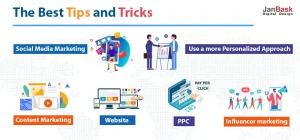
In today's fast-paced digital landscape, businesses must keep up with the latest digital marketing techniques to stay ahead of the competition and effectively engage with their customers online.
QR codes have been in use for a significant amount of time. However, consumer interest was lacking until the pandemic period. QR codes in marketing can help businesses to bridge the gap between physical and digital marketing channels, allowing them to create a more integrated and seamless customer experience.
Now, marketers from all over the world are racing to take advantage of this new opportunity and establish a direct relationship with end-users. The uses of QR code are diverse, ranging from mobile payments and ticketing to inventory management and authentication. These codes can be scanned using a smartphone camera, leading users to a specific website, landing page, or social media profile.
QR codes can be an incredibly powerful and measurable tool to engage with your target audience and achieve your marketing goals. In this blog post, we will explore the top uses of QR codes in marketing campaigns, and how a professional digital marketing services provider can help with its implementation, and strategy formulation.
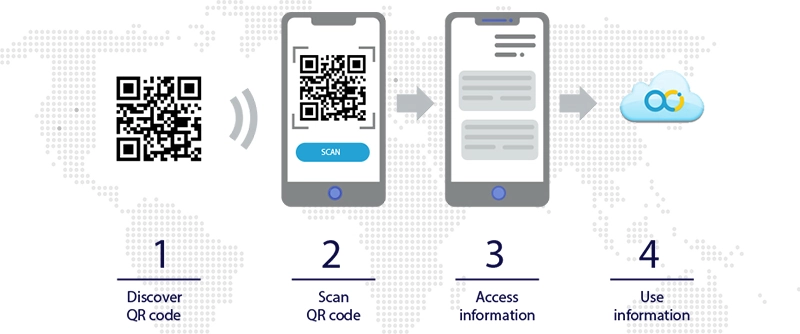
With the growing popularity of mobile devices and contactless transactions, marketing QR code has become an essential tool for businesses looking to stay ahead of the competition and connect with their customers in new and innovative ways.
Technology has advanced significantly over the last decade. The camera app on today's smartphones typically has the capability to scan QR codes. In the old days, you were required to download a specialized app. The challenge for those in charge of marketing is how to make use of this technology now that it is more widely available and recognized.
When a user scans the code using their mobile phone, the activity that you specify will be performed. Downloading an app, going to a specific website, or watching a video fall into this category.
The use of QR codes in marketing can bring an abundance of advantages to marketing agencies. It makes it possible for marketers to communicate with their target population through a variety of channels and increases the level of user engagement. Here is why use QR codes.
QR Codes can be incorporated with a wide variety of marketing materials for virtually any purpose, including print collateral, outdoor display, and direct mail. This gives them a high degree of versatility.
QR codes streamline the process by condensing it into a single image, making it easier for users. Businesses can make use of QR code to direct customers to their official website, contact information and phone numbers, various advertising offers, and any other information that may be helpful.
QR code in marketing initiatives is great because they make it easy for businesses to track and analyze key performance indicators. Traditional advertising channels, such as billboards, print advertisements, digital signage, flyers, and the like, allow marketing QR codes easily.
Marketers can then connect the QR codes to their website or landing page. By scanning those QR codes, users can interact with advertisements that are presented in person. Because of this, companies can make use of QR code to bridge the divide between their online and offline marketing efforts by allowing their offline customers to join them online.
QR codes and the information they connect to are universally accessible from any modern electronic device. It eliminates the requirement for developing any unique platform and frees businesses that use them from a significant amount of administrative burden.
Some of the uses of QR code include providing easy access to websites, sharing contact information, making mobile payments, and tracking inventory.
QR codes are environmentally friendly because they are a form of digital signage that can be embedded and shared among various electronic devices. Because of this, there is no longer a requirement for any kind of paper record, which enables businesses to become paperless and contribute to preserving the environment.
They are simple to make, put to use, and repurpose unlimited times to meet your requirements. Since QR codes are permanent, businesses only need to generate them once to access them for a considerable amount of time. In addition, QR codes can be detected even after suffering 30% structural damage, which makes them exceptionally durable and ideal for marketing campaigns with a long-term focus.
Consumers can transition from a physical experience to an online one with the use of QR codes. Users, for instance, can access a landing page developed specifically for that experience by scanning a QR code contained within a physical brochure.
People all over the globe are using QR codes, and this trend is only expected to continue. Marketing QR codes can be an effective tool for businesses to engage with their customers and promote their products or services through interactive and personalized experiences. They arouse a feeling of wonder and mystery in users, making them an excellent instrument for the execution of interactive marketing campaigns.
The proliferation of omnichannel marketing has prompted marketers to incorporate the online and offline marketing systems they use in their businesses. QR codes simplify the process of integrating those features.
Marketing QR codes can be an excellent way for companies to track the effectiveness of their advertising campaigns and gather data about consumer behavior. QR code in marketing can enable businesses to monitor the frequency with which their codes are scanned, as well as the locations and devices from which they originate. Marketers are able to run measurable marketing campaigns as well as monitor the effectiveness of the conventional advertisements they employ as a result of this.
If you're looking to increase your brand's online visibility and drive more traffic to your website, it may be worth considering partnering with an experienced online marketing services company. Creating a successful content marketing campaign requires not only great content but also a well-planned strategy that aligns with your business objectives and target audience. These advantages will definitely help you understand why use QR codes.
So what are you waiting for? Get started today!
In this day and age, mobile gadgets are in charge of determining how customers behave. With the rise of mobile devices and the increasing popularity of online shopping, QR code in marketing has become an essential tool for businesses to engage with their customers.

Therefore, you can use QR codes for marketing your company in a variety of different methods.

The use of QR codes to direct users to a specific website or landing page is by far the most common implementation of these QR codes in marketing. In this day and age, conducting business via the internet is not a viable choice.

In addition, companies that sell tangible goods and services typically have websites and landing pages that they use to promote brand awareness and capture lead information. It is relatively simpler to direct a target population to a website when they are online. It is sufficient for marketers to provide users with the website link, and users can easily access the website by clicking on the link provided.
The challenge for marketers, on the other hand, arises when they have to interact with physical audiences and then direct those audiences to a website or landing page. Users won't be able to avoid opening their computers and entering the URL no matter what. This procedure requires a lot of time and is rife with potential for mistakes.
Customers can be directed to your website by scanning a QR code printed on a pamphlet, flier, advertisement, or email. When they read the code, it will take them to a particular webpage on the internet.
Consider the web page on your site that you want people to visit and what you want them to do once they are there. Then, direct them to that page. You'll be able to plan a campaign using QR codes for marketing to address these questions.
Marketing with QR codes allows companies to create a seamless customer experience by providing quick access to information, promotions, and other marketing materials with just a scan of a code. If your company has an app, y can affix the QR code to your flyers, posters, or any other material that you use for promotion.
Users' devices will be redirected to the App Store when they scan the code, where they will have the opportunity to download your application. In addition, applications will sometimes use QR codes to encourage user participation within their community.
Customers trying to locate your storefront on a map can benefit from using QR codes for marketing if you have a physical location. Include the QR code on your website and any social media sites and promotional material you have.
Instead of looking up the location, visitors interested in stopping by can simply scan the QR code on your website. If a user scans the code, your location will automatically load into the navigation app of their choice, which is typically Google Maps or Apple Maps. They will have an easier time finding your company due to this.
More positive feedback from customers can be obtained using QR codes for marketing. Not only do reviews provide a platform for customers to air their grievances, but they also serve to guide the purchasing choices of other consumers. It is possible to hasten and improve the efficiency of the process by presenting customers with a QR code and requesting that they provide feedback on your company.

Including a QR code in your email introduction will make them more effective. You also have the option to provide an additional incentive with each evaluation, should that become necessary.
Social media profiles can be promoted with QR codes as well. Because of this, users won't have to spend time and effort looking for your account, saving everyone time and effort. Additionally, it will help increase the number of followers and engagement measures you have.
Ticket bearers at events can also have their identities verified using QR codes for marketing. The process of checking in for a show, musical, or movie is now simplified. As a result, saving time and reducing the amount of effort required. The use of QR codes for the purpose of crowd control is also common at large gatherings such as music festivals. These codes can also send pertinent notifications and up-to-date information at any point during the event.
Business cards make it easy for service providers such as consultants, real estate agents, insurance agents, and others to exchange contact information with one another and expand their professional networks. Although traditional business cards still have their place in the market, producing them requires significant manual effort. When people want to save a contact on their smartphone, they have to manually enter the information into the device, which is a laborious and error-prone process.
Rather than physically entering your contact information, users can simply scan the QR code to access your digital business card. This helps providers expand their network more quickly while also saving them time and increasing the accuracy of their work.

Mobile apps are one of the most effective platforms to reach and engage a mobile audience, which currently constitutes more than half of all internet users. This audience is one of the most important demographics in the world.
In order to increase the number of downloads of their mobile apps, marketers can use QR codes to promote mobile apps through conventional advertising channels such as billboards and newspapers. A QR code for app distribution links can be generated by marketers with the help of a QR code for downloading apps. A user can access the app store and download the app by scanning the code, after which they will be able to select the appropriate platform (iOS or Android).
The effortless exchange of information as well as multimedia, is made possible by QR codes. Marketers interested in educating their customers can use QR codes to share a wide variety of information with their customers, such as pictures, animated GIFs, videos, and PDFs.
The use of discounts can significantly speed up the purchasing process.

The majority of marketers are aware of the significance of voucher discounts. However, the true challenge is getting customers to use the coupons by distributing them and encouraging them. This problem is remedied by QR codes, which also aid in the distribution of discount codes.
By offering exclusive discounts, promotions, or access to content, QR code in marketing can incentivize customers to engage with a brand and increase their chances of making a purchase.
When the user scans the QR code, they are able to view the message, which is a fascinating application of the QR code. It is the next step in mobile marketing. It has the potential to be beneficial in increasing sales, assisting users with on-demand upgrades, providing customer service, and putting in place a strategy for SMS registration.
QR codes have been shown to be one of the most effective methods for connecting users who are not currently online with users who are. For instance, if a user walks into a restaurant and wants to check the menu, all they have to do is read the QR code for the restaurant, and then they will immediately see the menu displayed on the screen of their smartphone.
There are a variety of additional marketing strategies in which QR codes can be utilized to share information with a consumer; all that is required of you is to present the user with a distinct Call-To-Action (CTA).
Partnering with a reputable digital marketing company can help businesses maximize their online presence and leverage various digital channels to reach their target audience and drive growth.
Because QR codes are so flexible and adaptable, marketers can use them in a wide variety of situations. Let's take a peek at the optimal locations for QR codes, shall we?
The placement of QR codes in print publications such as newspapers, magazines, and other kinds of print media is ideal. The number of people reading newspapers and magazines has increased consistently over the past few years, despite more and more things migrating online. Advertisers can provide readers access to their website or other digital destinations by including a QR code on a printed publication such as a newspaper or magazine.
Out-of-home (OOH) advertising provides numerous opportunities for marketing firms to include QR codes in their campaigns. These include billboards, digital signage, and banners in public areas such as bus stops, metro stations, and other places. The QR codes may contain links that direct users to a website, a social media platform, contact information, instructional content, and more. In addition, guerilla marketing strategies benefit greatly from using QR codes for marketing.
Another great location for putting QR codes is advertising in stores. Retailers can use it to share valuable information, such as contact information and product details, as well as promote their website and social media accounts.
Using QR codes can improve the efficiency of "smart product packaging," which is a relatively new idea in the retail industry. Manufacturers can add QR codes to the packaging of their products to direct consumers to online channels and foster more meaningful relationships with those customers.
Other forms of print media, such as brochures, flyers, and handouts, are all great places to put QR codes in order to interact with users who are not online. QR codes can be used on flyers by marketers to accomplish a variety of tasks, including but not limited to: increasing website traffic; driving leads and purchases; showing directions and sharing information; etc.
Advertising firms can utilize QR codes on any and all articles of clothing and accouterments, such as shoes, wearables, jewelry, and the like. They can be printed directly onto the product or attached to the item as a tag. According to the marketing strategy, the QR codes can be connected to a variety of different internet channels.
The use of QR codes in shopping bags, similar to their use on product packaging, can be very successful. Putting QR codes on shopping bags and then linking those codes to the marketer's website, social media accounts, and other online channels allows marketers to transform the bags into useful marketing assets.
Many businesses today rely on digital marketing techniques for business growth to reach their target audience and grow their online presence.
Interested in our Digital Marketing Services?

QR codes have a wide variety of applications, and if they are used effectively, a QR codes marketing strategy can be improved, and a company can see increased customer engagement. The following are some best practices that should be followed by marketing companies when implementing QR codes:
The most important guideline to follow when it comes to marketing with QR codes is to use QR codes exclusively when the campaign's objective is to increase the number of readings on QR codes. For instance, if a marketing agency is running a campaign for a home repair service that aims to get more bookings, then they can use QR codes to enable people to make bookings.
There should be no disconnect or confusion when marketers implement QR codes in their marketing plans. The use of QR codes ought to be assigned a specific function to support the marketing objectives and make a contribution to the Return.
For instance, if a marketing campaign aims to boost the number of people who visit a website and the number of leads it generates, the QR code should direct users to the website. If the purpose of sharing contact information and receiving responses is to accomplish both, the QR code in question should share contact information.
Including a QR code within a company's emblem has the potential to be a valuable branding asset and assist marketers in growing their brand's recognition. To maintain a consistent brand and to match their QR codes with their brand, marketers should generate QR codes that include their company logos.
The QR codes should be simple to read. The average attention span of users is getting shorter and shorter, and if they have to make numerous attempts to scan a QR code, they won't bother interacting with it at all. As a result, it is essential to print QR codes with the appropriate height and level of clarity. The recommended minimum size for QR codes is 0.8 x 0.8 inches, but this size can be increased depending on the needs of the application.
The presentation of a QR code campaign is critically important to the initiative's overall level of success. A QR code that is attractive to the eye is more likely to be scanned than one that is not. Therefore, to guarantee a higher level of engagement, marketers need to move beyond the traditional square-shaped, black-and-white QR codes and experiment with new shapes and colors.
Users can be encouraged to read a QR code by providing a call to action (CTA) accompanied by the code. For marketers to increase the percentage of people who scan their ads, they need to use actionable calls to action, such as "Scan to get location" and "Scan to get 20% off."
Always generate dynamic QR codes so that you can update the information and URL without having to reprint the codes. Marketers should do this. Additionally, scans on dynamic QR codes are trackable, which enables marketers to evaluate the effectiveness of their QR code campaigns and make educated decisions.
Because increasing user engagement is the ultimate goal of using QR codes for marketing, it is absolutely essential to design the complete experience of using QR codes in a user-friendly way. In order to guarantee the general success of their QR code campaign, marketers are required to provide a problem-free scanning experience, and a problem-free experience after the code has been scanned.
Over the past few years, there has been a meteoric rise in the number of businesses that use QR codes marketing for engaging their customers. With the ability to store a significant amount of information in a small space, the uses of QR code are expanding beyond QR code marketing and advertising to include education, healthcare, and logistics industries.
A number of the world's most well-known companies have integrated QR codes into marketing and business strategies to connect their offline and online channels. Let's take a look at some companies that are doing a good job of utilizing QR codes.
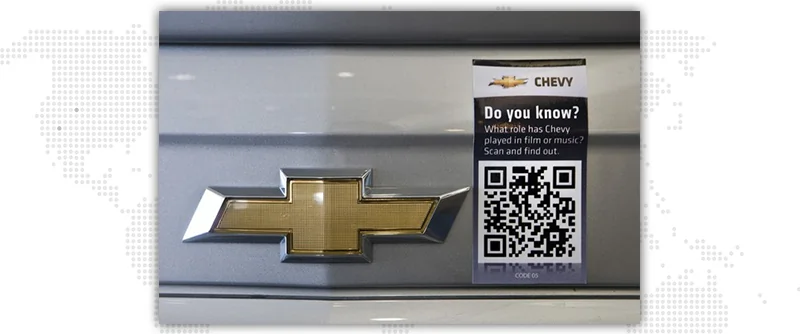
In order to improve customer engagement and communicate vital vehicle information, General Motors incorporated QR codes into their vehicles.
In order to create a virtual toy store, Walmart displayed actual toys and attached a QR code to each one of them. Users could use the barcode scanner to access the internet toy store and make their purchases there.
During the pandemic, Burger King did QR code marketing on its television commercial in order to attract customers. Users can access the Burger King website by scanning the QR code floating on the screen. Once there, they could get free discount vouchers.
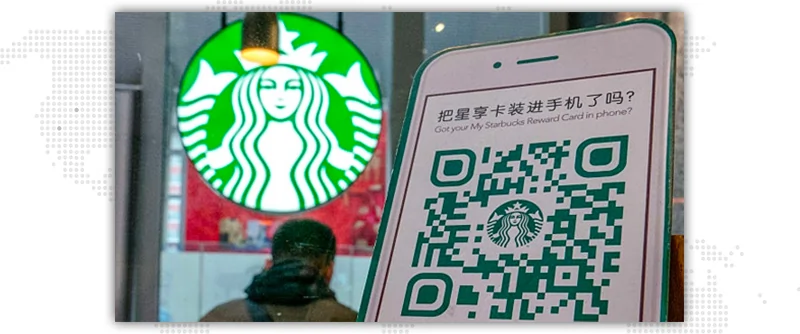
In the same way that millions of other companies have, Starbucks has digitized its customer interaction model and incorporated a QR code marketing strategy. They implemented these codes into their internet and print advertisements in major cities across the United States.
And after observing the reaction, they went ahead and printed their QR codes on flyers before taking things to the next level. The business took every precaution possible and continued to reap financial benefits throughout and after the pandemic.
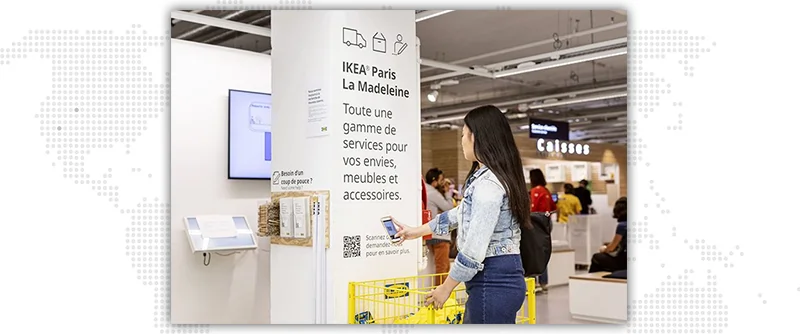
IKEA also advertised its mobile app by providing QR codes in its stores that customers could use to download the app.
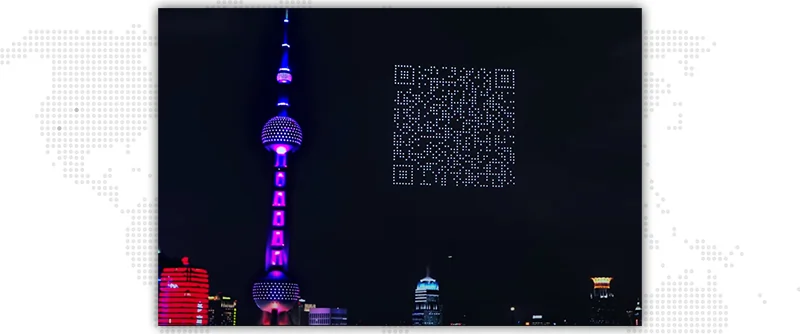
Cygames elevated the concept of QR codes to a whole new level by projecting a massive QR code into the sky composed of 1,500 individual QR codes. Users could download the game Princess Connect by Cygames by scanning the data provided.
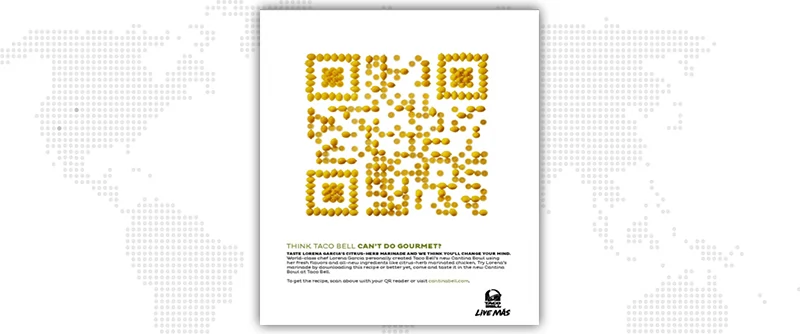
Since almost the beginning of the company's existence, Taco Bell's marketing efforts have included use of QR codes. In 2012, they introduced a marketing initiative known as Doritos Locos Tacos. They wanted to interact with their customers, so they put QR codes on the packaging of their taco holsters. If you have not examined them yet, you should do so the next time you use them.
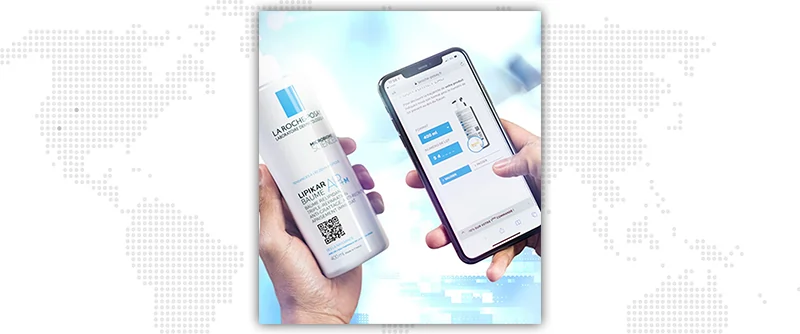
A short while ago, L'oreal entered into a partnership with Glamour and installed QR code stickers in taxi cabs in an effort to gain momentum from people who were waiting in traffic. The marketing strategy was a success because it resulted in the generation of a large number of leads and assisted the companies in the promotion of their Yves Saint Laurent and Lacome product lines. During the course of the promotion, there was an 80 percent increase in the number of downloads of the L'oreal app.
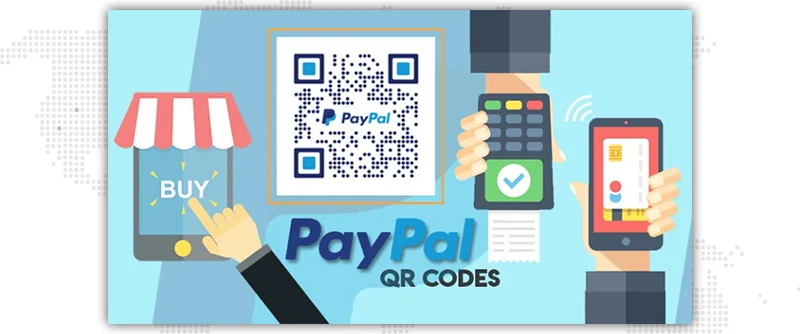
The most important application for QR codes is the simplification of financial transactions. Travel to Asia if you want to experience its enchantment on a grand scale. It was instrumental in the process of digitizing the economy in developing countries and playing a crucial role in this transformation. PayPal accomplished the same thing and aided in accelerating transactions on both a national and international scale.
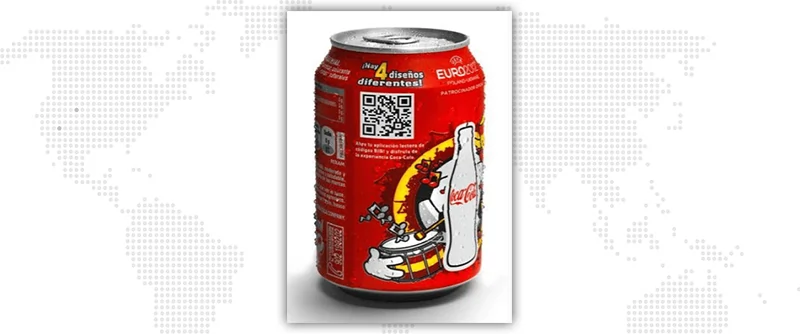
Coca-Cola gave QR Codes a fresh look by including them in their packaging alongside dynamic QR Codes that updated with fresh content every time they were scanned by consumers. Unlike traditional QR Codes, dynamic QR Codes allow you to designate multiple time-sensitive marketing campaigns to the same code.
QR codes offer an innovative and measurable way to boost your marketing campaign. With the widespread use of smartphones, QR codes have become more popular and accessible than ever before. QR codes can be utilized in a variety of marketing efforts, such as promotional campaigns, product packaging, event marketing, and more.
By leveraging the power of QR codes, you can enhance engagement with your target audience, drive traffic to your website, collect valuable data, and measure the effectiveness of your marketing efforts. Additionally, marketing with QR codes can be an affordable option for small businesses to promote their products or services and increase their brand awareness.
To make the most out of your QR code marketing campaign, it's essential to ensure that your codes are scannable, relevant, and provide value to your audience. By following these best practices, you can create a successful and measurable QR code marketing campaign to help your business grow and thrive. Marketing with QR codes can be a versatile tool for businesses to connect with customers in different stages of the buyer's journey, from initial awareness to post-purchase engagement
As the demand for online marketing continues to grow, it's essential to partner with a reliable and reputable digital marketing service company to help your business stand out in a competitive market. Contact JanBask to find the right marketing services for your business.

Looking for Online Marketing Services?
1. What are some of the advantages of using QR codes?
They are safe, quick, hold more data, direct customers immediately, increase engagement, streamline ordering, and share business information.
2. What are the uses of QR codes?
The following are some inventive QR code applications that individuals and organizations can use.
3. What is the purpose of a QR code in business?
The following are some ways that QR codes can assist in marketing your merchandise and business. Information regarding the product: Products, merchandising displays, and other print marketing collateral that feature QR codes with extended pricing, sales, and other relevant information.
4. How do QR codes increase sales?
You can encourage customers to make immediate purchases and make additional ones by providing them with rewards programs, upsell options, discounts, and exclusive offers through the use of QR codes.
5. Are QR codes digital advertising?
There is no limit to the number of ways in which you can make your digital advertising quite engaging and interact with your audience by scanning des. In addition, providing direct access to digital content through scanning a QR code is the optimal way to optimize the effectiveness of your QR code marketing efforts while making the results easily trackable.
6. How much does it cost to generate a QR code?
Generating a QR code is absolutely free. There are many tools online that you can use to generate your own QR code and use it for various purposes. However, if you are using a QR code for taking payments, you must get it linked by a trustworthy financial institution.
Infact, QR code in marketing can be an affordable option for businesses of all sizes to expand their reach, connect with their target audience, and build brand loyalty over time.
C
Great suggestions. Thanks for sharing this blog.
J
I follow your blogs regularly. I enjoyed this one a lot.
E
Thanks for sharing these suggestions.
R
Amazing examples.
K
Can you tell me how to generate a QR code?